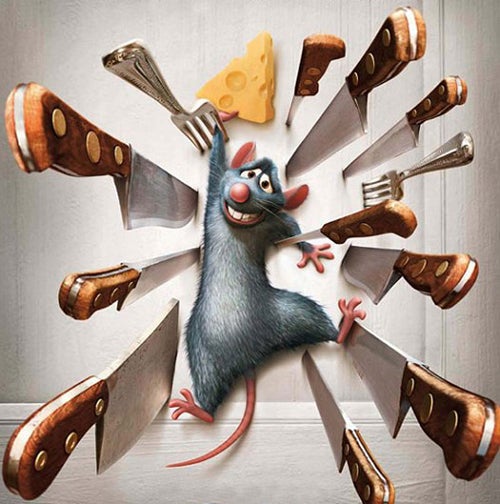
Your support helps us to tell the story
From reproductive rights to climate change to Big Tech, The Independent is on the ground when the story is developing. Whether it's investigating the financials of Elon Musk's pro-Trump PAC or producing our latest documentary, 'The A Word', which shines a light on the American women fighting for reproductive rights, we know how important it is to parse out the facts from the messaging.
At such a critical moment in US history, we need reporters on the ground. Your donation allows us to keep sending journalists to speak to both sides of the story.
The Independent is trusted by Americans across the entire political spectrum. And unlike many other quality news outlets, we choose not to lock Americans out of our reporting and analysis with paywalls. We believe quality journalism should be available to everyone, paid for by those who can afford it.
Your support makes all the difference.
What courses? A myriad of titles including: animation; computer arts; creative digital media; animation production; animation technology; computer visualization; computer games arts. Plus a host of joint honours combinations.
What do you come out with? BA, or a BSc for some computer animation courses. At Dundee, you’ll get a BDes.
Why do it? "Recent years have seen unprecedented growth in computer-generated films and games. Animation and digital effects are among the most demanding and fastest growing areas of creative and technical endeavour. Each new release pushes the boundaries of computing technology by applying artistic skills with mathematics, physics and software engineering. Successful technophile artists have a mastery of the sophisticated technology involved and the talent to use it in the creation of works of art. A good degree in this field should equip you with understanding, knowledge and skills in the creative and technical aspects of animation." - Peter Comninos, director of the National Centre for Computer Animation at Bournemouth University
What's it about? Producing multiple images that create the illusion of movement when strung together. Your work can be commissioned for films, television advertisements, cartoons and video games. Students choose to specialise in 2D animation, 3D model-making animation or digital animation that uses computer-generated imagery (CGI) – the software made famous in the early 1990s by hit dinosaur movie Jurassic Park. During the course you can expect to study drawing, character animation, graphics and video production, and you will learn about the whole animation production process from start to finish, with the opportunity to create everything from storyboards to scripts. For computer animation courses, students will gain an understanding of both the creative and the technical processes involved – so a talent for life drawing will be just as valuable as maths and programming skills. Some choose to study animation with another subject, illustration being one of the most popular choices. There are courses to cater for everyone’s tastes and talents, with programmes focusing on computer games design becoming increasingly popular in recent years.
Study options: You’re looking at three years full-time for most courses, although a small number, including Derby, Huddersfield, Leeds Met and Teesside, offer the opportunity to take a sandwich year in which to work in the industry. In Scotland, courses are four years long, and at Sheffield Hallam you can also take an extra year and come out with a MArt.
What will I need to do it? A flair for art, and, in many cases, a good grasp of IT. The usual route is via a pre-degree art and design course such as a foundation art and design, although most courses accept A-levels too. Teesside asks for 300 UCAS points, equivalent to BBB at A-level, Portsmouth asks for 240 (CCC), Falmouth 220 points (CCD), while Leeds Met will accept promising applicants with as little as 160 points, or CC at A-level. Nearly all courses interview applicants and ask to see a portfolio providing evidence of your creative ability. Not only does Bournemouth require 340 UCAS points (AAB) for its BA in computer animation arts, but you’ll also be tested in maths, logic and life drawing before you make it onto the course.
What are my job prospects? Good, if you can get the work. It’s a very competitive industry and most jobs are given on a freelance basis, but it can pay well once you've made a name for yourself, especially in the ever-growing computer games industry. Starting salaries are very low, beginning at around £12,000, with games animators starting at around £18,000 ( www.prospects.ac.uk). However, wages rise quickly with experience. Unlike some art courses, there’s a real commercial angle, meaning you can actually get a job that utilises your creativity.
Where’s best to do it? Bournemouth was the highest ranking university for art & design that offers animation courses in the Complete University Guide 2012. It is home to the internationally-renowned National Centre for Computer Animation, and over 50 of its graduates worked on James Cameron’s 3D blockbuster Avatar. Dundee, Robert Gordon and Falmouth all come out well too. Award-winning animator Sabrina Schmid is a senior lecturer at Teesside, which is one of a small number of Skillset Media Academies in the UK.
Related degrees: Art; design; graphic design; computer science.
Join our commenting forum
Join thought-provoking conversations, follow other Independent readers and see their replies
Comments